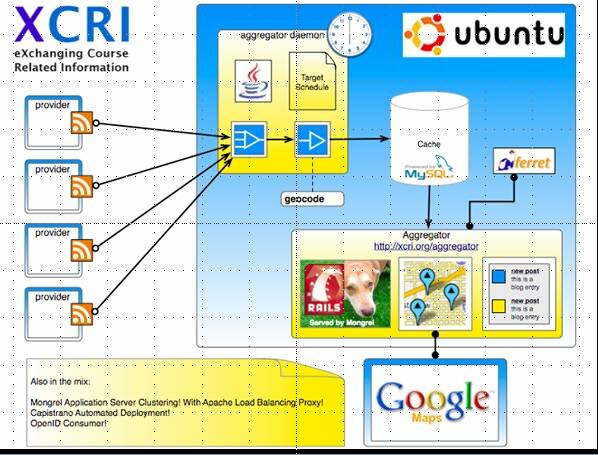Overview:
eXchanging Course-Related Information (XCRi) is a JISC funded project that aims to define specifications and appropriate technology bindings for describing course-related information
Delivery of the national “informed choice” agenda around learning opportunities requires clear and explicit course information to be made available to students and organisations across the learning lifecycle. However, a number of challenges existed:
• There was no standard way to exchange information about courses.
• There was a lack of standardised course information exacerbated by increasing demand from multiple stakeholders (learners, quality agencies, funding councils etc).
Approach:
A JISC funded, UK orientated project was launched to establish a specification to support the exchange of course-related details. The specification took a business led approach and encompassed vocabulary and suitable technology bindings (e.g. XML/RDF) for describing course related information including course marketing, course quality assurance, enrolment, reporting and personal development requirements.
The technical architecture of the XRCi Course Advertising Profile (XCRI-CAP) is a simple web-based approach. Universities, colleges and training providers each offer XML documents describing their courses. Aggregators (such as discovery and guidance services) periodically poll each provider to obtain the latest version of their course catalog using a standard request. The aggregator combines the results to create a catalog to use for searching and adding features.
The specification supports multiple demands from admissions through curriculum management to enrolment and reporting activities and also could potentially help applicants to structure applications by supporting entry profiles.

Benefits:
• Allows education and training providers to publish course information so that it can be collected, accessed and used easily by organisations with course search services such as UCAS.
• Data entered once and reused.
• Allows students to locate courses they are interested in through a Google Maps like interface and assemble in an easy to understand way.
• Considerable interest in many countries in Europe in creating specifications for the exchange of information about courses and other learning and training opportunities.
• Although developed for HE, XCRi is now used in the 14-19 area prospectus.
• Harmonisation across Europe underway with development of an EU standard based upon XCRI-CAP and other national specifications; adoption of XCRI-CAP now will assist implementers in conforming to the EU standard when it is released (2010-2011).
• Reduces the barrier to entry for developing new services and businesses that need to make use of course information, such as industry-specific advice services, or services promoting UK courses overseas.
• Can act as a catalyst for improved coordination of business processes and information within institutions.
For further information and enquiries please contact